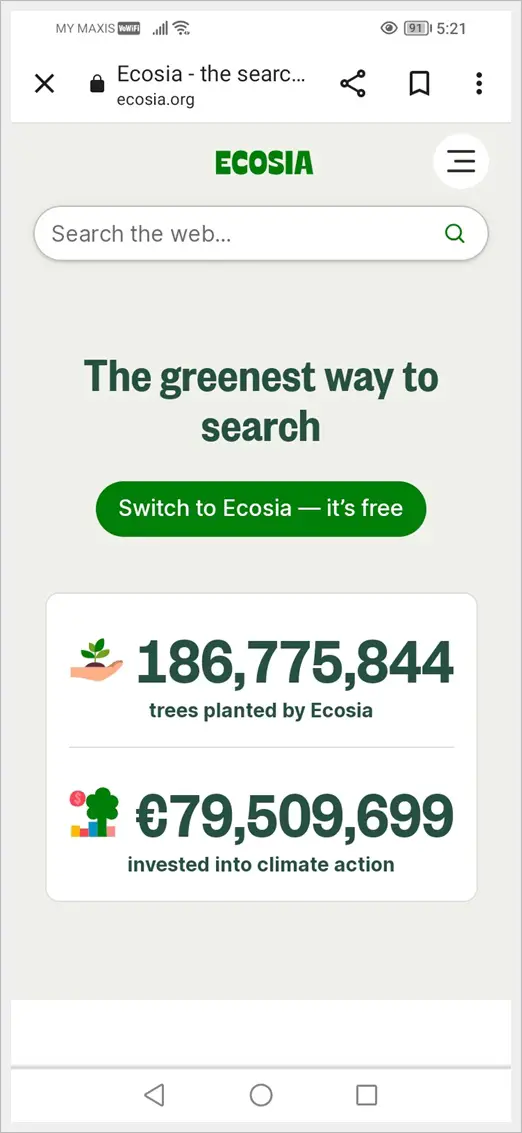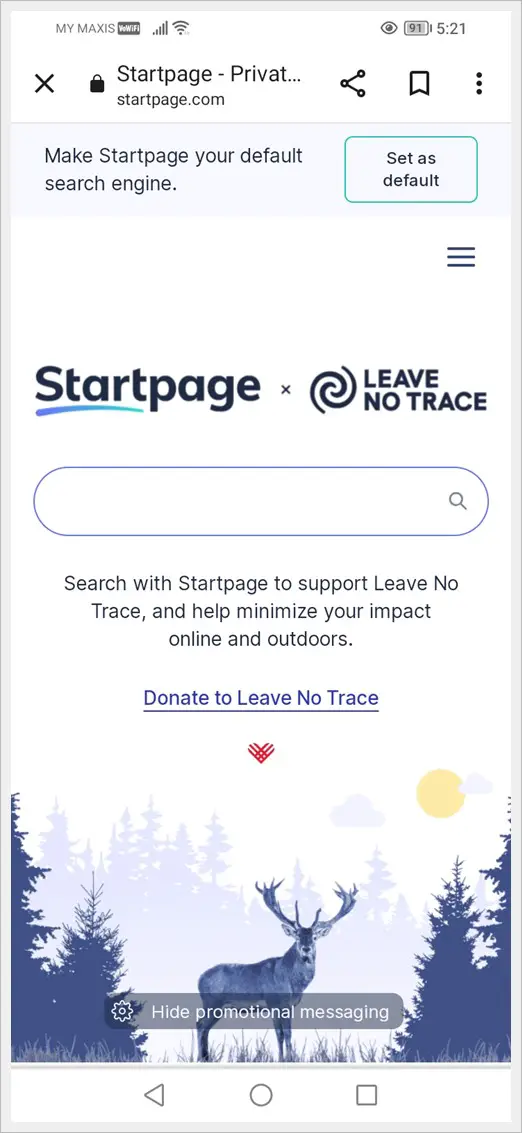Google’s dominance in the search engine market is akin to a well-worn path, well-lit and often taken without second thought. Its algorithms have become our digital compass, directing us to answers, services, and entertainment seamlessly. However, as concerns about privacy and diversity grow, it’s time to consider other paths. This article explores alternatives to Google, offering a roadmap for those ready to venture beyond the familiar. In an era where privacy and diverse options are gaining importance, exploring alternative search engines becomes a meaningful endeavor.

The Top Search Engine Alternatives to Google
1. Bing (Microsoft’s Search Engine)

Bing, brought to you by Microsoft, offers a search experience with a visual twist. It’s not just about finding information; it’s like a part of Microsoft’s big family of tools and features.
What makes Bing stand out is its good looks. Every day, when you use Bing, you get a cool picture on the homepage with interesting facts, adding a touch of daily discovery to your search routine.
Bing has something called “Rewards,” a special program that gives you points when you use Bing to search or shop. These points can then be turned into cool stuff like gift cards or donations to nonprofits.
2. DuckDuckGo (The Privacy-Focused Search Engine)

DuckDuckGo is like a secret hideout for people who care about privacy. It keeps your searches private, standing out in a time when many others track what you do online.
DuckDuckGo is simple to use, with no fancy extras, so you can focus just on what you’re looking for. It doesn’t store your personal info, making it a go-to for those who want their online activities to stay private.
One cool thing about DuckDuckGo is the “Bang” shortcut. It’s like a quick trick that lets you search on other websites directly. This, along with DuckDuckGo’s simple design, makes it a handy choice for those who like to search the web fast and without any fuss.
3. Ecosia (The Green Search Engine That Plants Trees)

Ecosia is a search engine that’s a bit different. Unlike others, Ecosia is on a mission to help the planet.
When you search on Ecosia, the ad money they make goes towards planting trees, contributing to a greener environment.
Using Ecosia is easy—it looks like a regular search engine. You type in what you’re looking for, and it shows you results, just like Google or Bing. But here’s the special part: with Ecosia, your searches contribute to making the world greener. They show you a counter that tells you how many trees you’ve helped plant just by searching.
4. StartPage (Google Search, Without the Tracking)

StartPage is a search engine that’s all about keeping your searches private. You know how sometimes you search for something, and then ads for that thing follow you everywhere?
Well, StartPage doesn’t let that happen. It gives you Google’s search results without keeping an eye on what you’re doing. Using StartPage is like having a secret search buddy. You type in your question, and it shows you results from Google. But here’s the cool part: it doesn’t track you.
So, if you’re someone who values privacy and doesn’t want your searches to be watched, StartPage is a great choice.
5. Yahoo (More Than Just Email)

You might know Yahoo from your email, but they also have a search engine. It’s like having a handy tool that’s part of the Yahoo family.
When you look at Yahoo Search, it’s a bit like meeting an old friend. It has a long history as a search engine and is part of a bunch of Yahoo services. So, if you’re already using Yahoo Mail or other Yahoo stuff, trying out their search engine makes sense.
Yahoo Search is simple to use. You type in what you’re curious about, and it shows you results. It’s not just a search engine; it’s like a helpful companion from the Yahoo family. If you enjoy having everything connected in one place, Yahoo Search could be a friendly addition to your digital world.
6. Yandex (The Search Engine from Russia)

In Russia, Yandex takes the lead as the go-to search engine. Its search page, akin to Google’s, welcomes your queries with familiarity.
But what makes Yandex intriguing is its expansive repertoire. Beyond just search, Yandex offers additional services like maps and translation, transforming itself into a versatile online hub.
Its multimedia-centric features distinguish Yandex, catering to users who prefer a more dynamic and visually rich search experience.
7. Baidu (Navigating the Web in China)

Think of Baidu as China’s version of Google. You type, and it shows you what you’re looking for, just like Google.
But there’s a key difference – Baidu operates within China’s rules. Baidu, being part of the Chinese digital scene, follows certain regulations. This means it filters some content based on what the government allows.
It’s essential to know that when you use Baidu, you might not see information that’s restricted in China. So, if you’re exploring the Chinese internet or are in China, Baidu is your guide, but with a twist – it plays by local rules.
8. Ask.com (Your Friendly Question-and-Answer Search)

Ask.com, unlike others, has a friendly Q&A style. Instead of just typing keywords, you can ask questions in natural language, like talking to a friend.
This sets Ask.com apart, making it feel like a helpful buddy in your quest for information. Ask.com’s search page might look familiar, but its standout feature is the option to ask questions directly. You type in your question, and it provides results that directly answer what you’re curious about. It’s a bit like having a conversation with the search engine.
This Q&A approach makes Ask.com a go-to for those who prefer a more conversational and intuitive way of searching the web.
Pro Tip: You can set the default search engine of your mobile browser to something other than Google. Learn how to change the default search engine on Android and iOS and break free from Google.
Final Thoughts
In the vast online world, Google has been our go-to guide. But now, as we care more about privacy, the environment, and diverse experiences, it’s time to realize there are other paths to explore.
Switching from Google isn’t just about trying different search engines; it’s about making your online journey fit your values. Whether you prioritize privacy with DuckDuckGo, go green with Ecosia, or enjoy visuals with Bing or Yandex, each alternative offers its own way to explore the web.
Baidu follows China’s rules, Ask.com is like a helpful friend, and Yahoo blends seamlessly with its services. These alternatives show the world of search engines is diverse, catering to different needs.
So, as we wrap up this exploration, remember you have the power to choose a search engine that suits you. Step off the familiar path, try these alternatives, and make your online journey uniquely yours. The online world is vast, and these alternatives make it even more exciting to explore.
